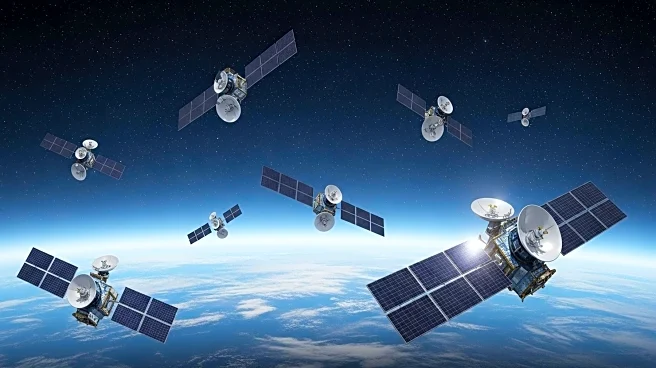What is the story about?
What's Happening?
The evolving landscape of space diplomacy is increasingly focusing on humanitarian and public health applications, facilitated by satellite technology. The United Nations Office for Outer Space Affairs (UNOOSA) and various industry coalitions are working to ensure that satellites are used effectively to support health and emergency services. This includes safeguarding these satellites from counter-space threats and coordinating rapid access to commercial satellites during crises. The initiative aims to shift the focus from signing agreements to achieving measurable benefits for people on the ground. Success stories, such as the Health Wagon mobile clinic in Appalachia using Starlink satellite broadband for telehealth, illustrate the potential of satellite technology to overcome geographical limitations and enhance healthcare delivery. Similar projects are underway in Guyana, aiming to expand telemedicine facilities using satellite broadband.
Why It's Important?
The integration of satellite technology into humanitarian and public health services represents a significant advancement in global health security. By providing reliable connectivity and data, satellites can help overcome infrastructure challenges in remote areas, ensuring access to essential health services. This approach not only enhances healthcare delivery but also strengthens systemic resilience against emergencies and pandemics. The collaboration between governments, NGOs, and private firms in co-financing pilot projects demonstrates a commitment to leveraging space technology for societal benefits. The initiative also highlights the importance of maintaining open access to Earth observation data, which can be used for predictive diplomacy and early warning systems, ultimately saving lives and resources.
What's Next?
Future steps involve embedding outcomes-first cooperation into practice by protecting humanitarian space services and standardizing emergency access to commercial satellite capacity. Governments, through UNOOSA and COPUOS, are expected to lead efforts to clarify the legal status of satellites supporting medical care and disaster relief. Additionally, protocols for swift bandwidth and imagery requests during crises are to be institutionalized. The focus will also be on keeping Earth observation data open and usable for public health purposes, with space agencies ensuring archives remain accessible. Co-funding NGO and industry pilots to extend care to underserved areas will be crucial, with governments and development banks providing grants and NGOs implementing sustainable models.
Beyond the Headlines
The reliance on orbital systems for global health security has outpaced coherent governance, as highlighted by the recent Starlink suspension. This situation underscores the need for elevating cooperative space capabilities to a strategic imperative, with sustained investment and protective protocols. The initiative aims to redefine space diplomacy by focusing on the measurable human impact produced by satellite technology, rather than merely deploying satellites. This approach could lead to long-term shifts in how space assets are utilized for humanitarian purposes, potentially setting new standards for international cooperation in space.

















